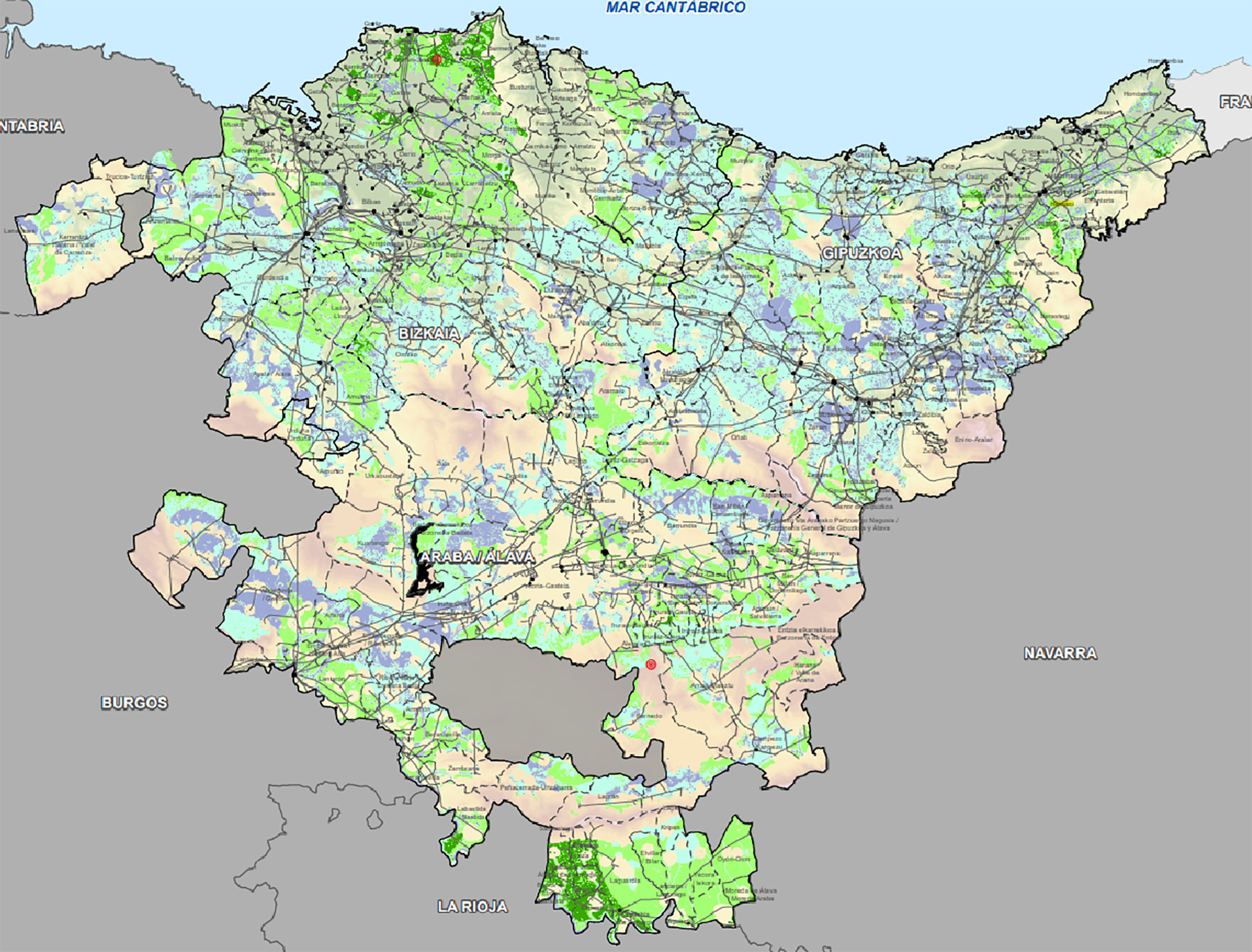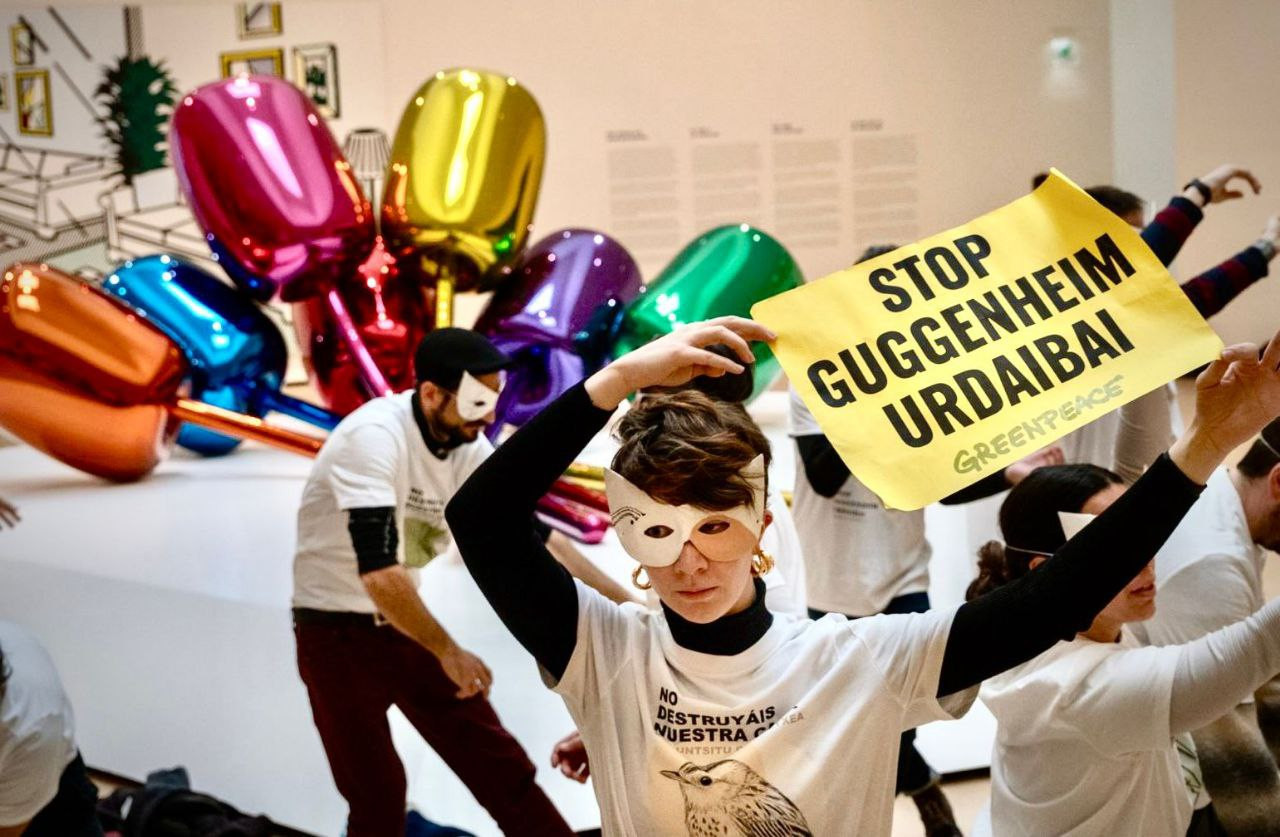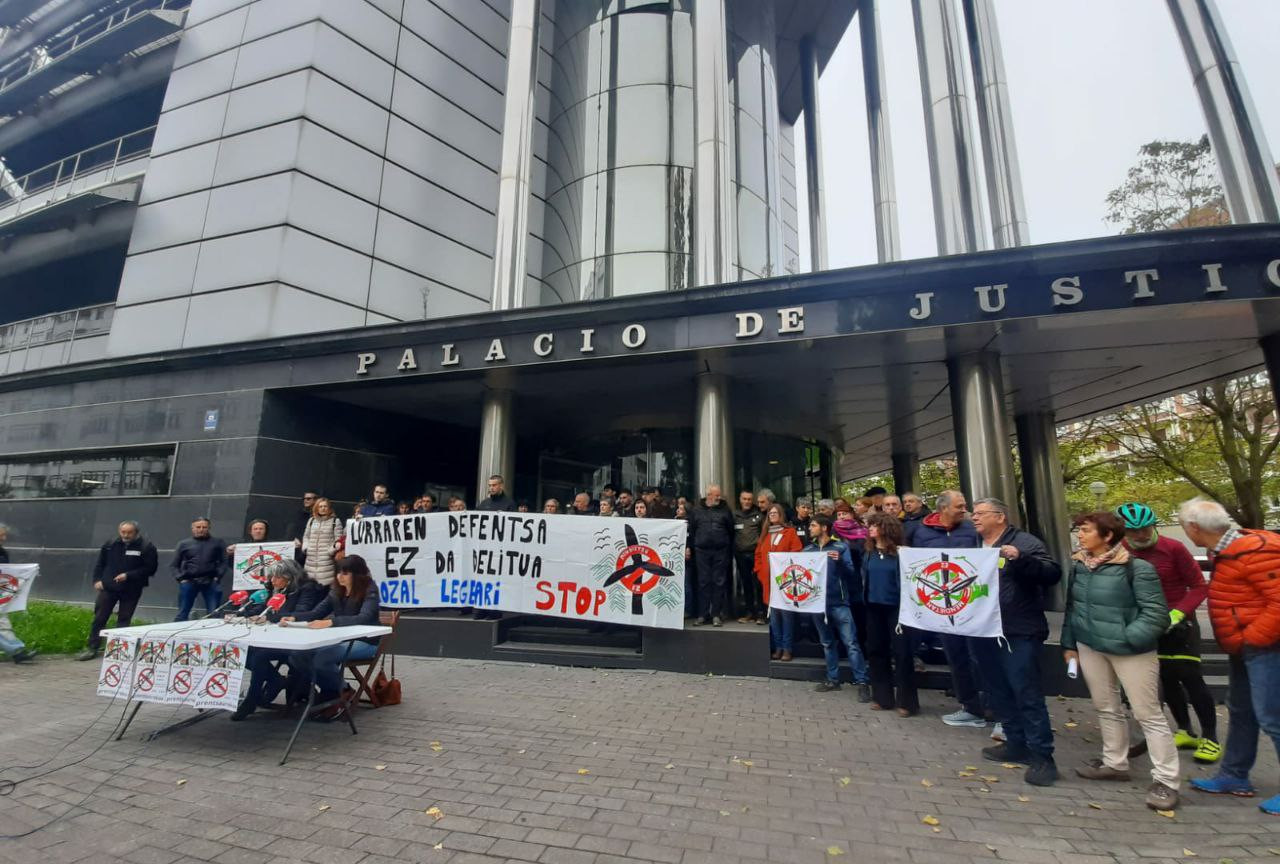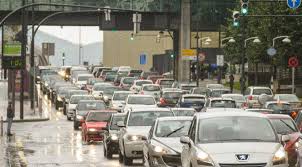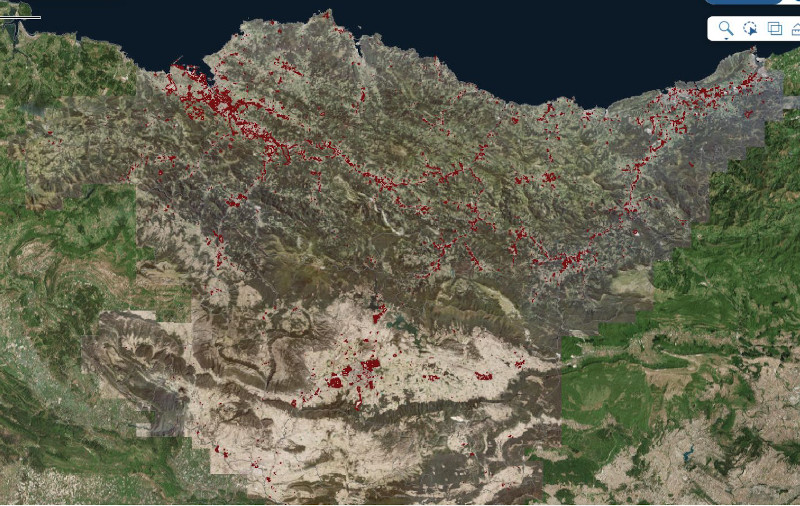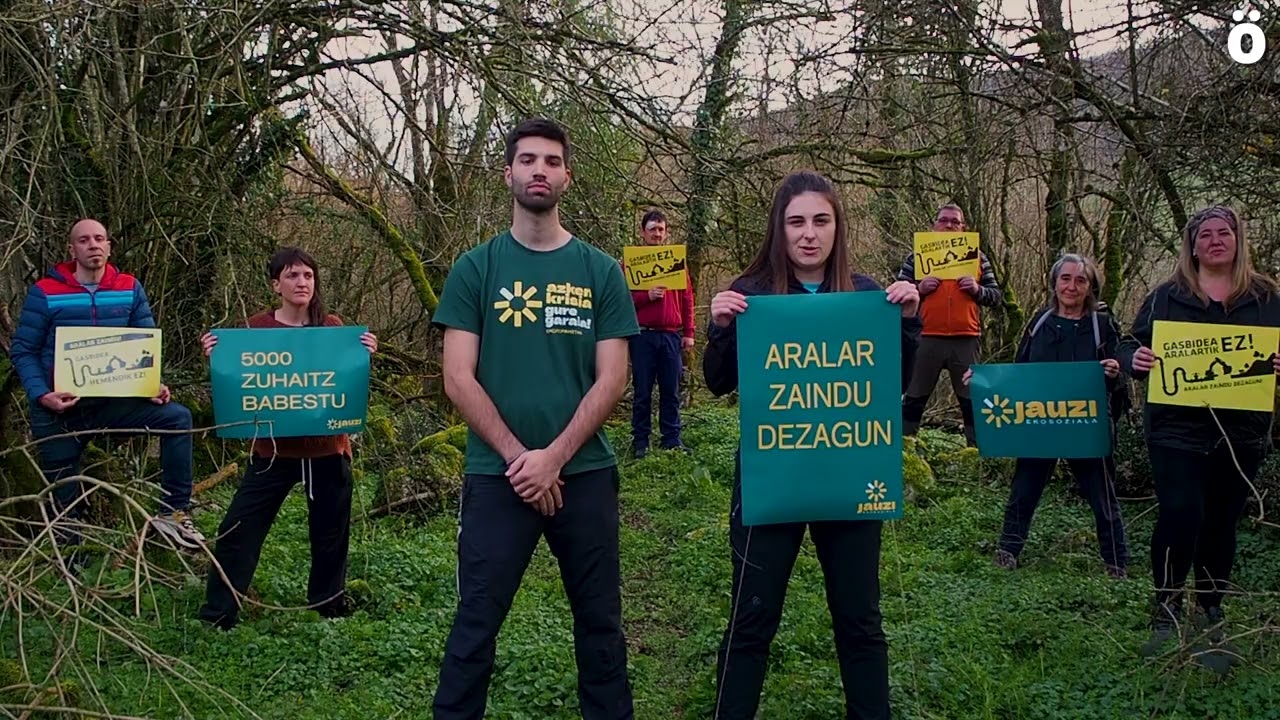"An imperial lifestyle that focuses on the 'energy transition' does not get us out of hell"
- Environmentalism in the face of the dilemmas of the energy transition has talked about the anti-capitalist left-wing ecologist Jorge Riechmann in Vitoria, organized by Araba Bizirik. The talk was guided by Adrián Almazán, a university professor and member of the Araba Bizirik group. Riechmann has spoken of the three existing routes in the face of the climate emergency and has defended the third path: the one that will take place considerably reducing energy and material consumption and developing social equality. In this change it has considered two sectors strategic: transport (electric cars are not the solution, but public transport) and food ("we already know where we should go: agroecology", he said). You've also talked about the background of your new book: Environmentalism; past and present, with a couple of ideas about the future.

Jorge Riechmann is from Madrid, a member of the Ecological Groups in Action and the Anti-capitalist Left. It drives "social environmentalism that is pathetic" (decreasing). He is a professor of ethics and political philosophy at the Autonomous University of Madrid and writes poetry, as well as ecological essays.
In the introduction of his intervention in Vitoria-Gasteiz, he denounced that when presenting the climate emergency solutions, the current discourse simplifies the issue and expands a reduced perspective: it relates the ecological transition only with the energy transition and equips it with the increase of the energy transition. He has pointed out that the eco-social transition is much more: working the mobility model, working the food system, considering the destruction of biodiversity also at the basis of the approaches... But on the energy issue there are three ways: the first is to continue as before or accelerate further; the solution called "energy transition", that is, green capitalism, is the second way, and he has pointed out that there is a third way of rapid equality and more rapid inequality.
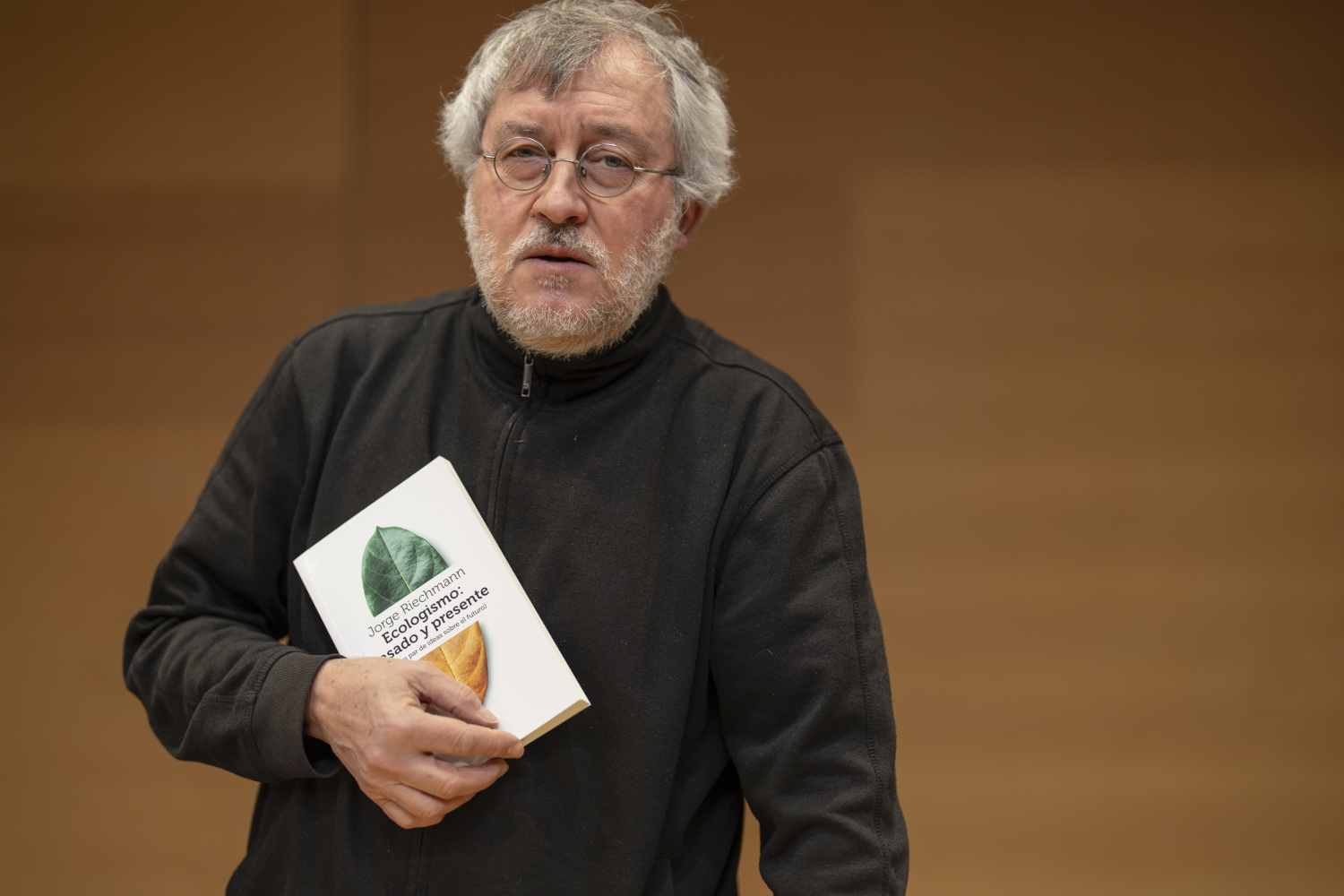
Way of A, far-right and door of hell
Riechmann explained that one of the ways in the face of the climate emergency is to continue as before, "or accelerate further the development of industrial societies and seek a growing use of fossil fuel-based energy". Within this attitude situates the far-right, which expands discourses against feminism and environmentalism and Trump allows it in his discourses, repeating the phrase "pierce, girls, pierce". "This road leads to a great mess. As Antonio Guterre, Secretary-General of the United Nations, has said, it opens the door to hell."
Road B, false premises and imperial lives
The second way, that of those that allow the "energy transition", is green capitalism and "is based on false premises," says Riechmann. "They indicate that it is possible to make a transition without socially significant changes." The way to understand welfare and development is the same as capitalism and follows the forms of consumption of "imperial lives". But Riechmann has announced that "this road is not going to get us out of hell": although renewables grow dramatically, if the model does not change, the only thing that will be achieved will be to consume less fossil fuels.
Throughout the conference, the very term "energy transition" has been questioned in the interventions that have been made by the public, and Riechmann recalled that never in history has there been a transition in the subject of energy: "It has never been passed from an energy vector to another energy vector", the new energy sources have joined previous energy sources. "And you just have to do simple math to realize that fossil fuels are a geological gift, a poisoned gift. There is nothing that gives us the strength that they have given us. To get an electric unit using wind power, you need 25 times more material than you need a central carbon. By this I do not mean, of course, that we have to continue with central coals and other fossil fuels, what I mean is that we have to live much less energy."
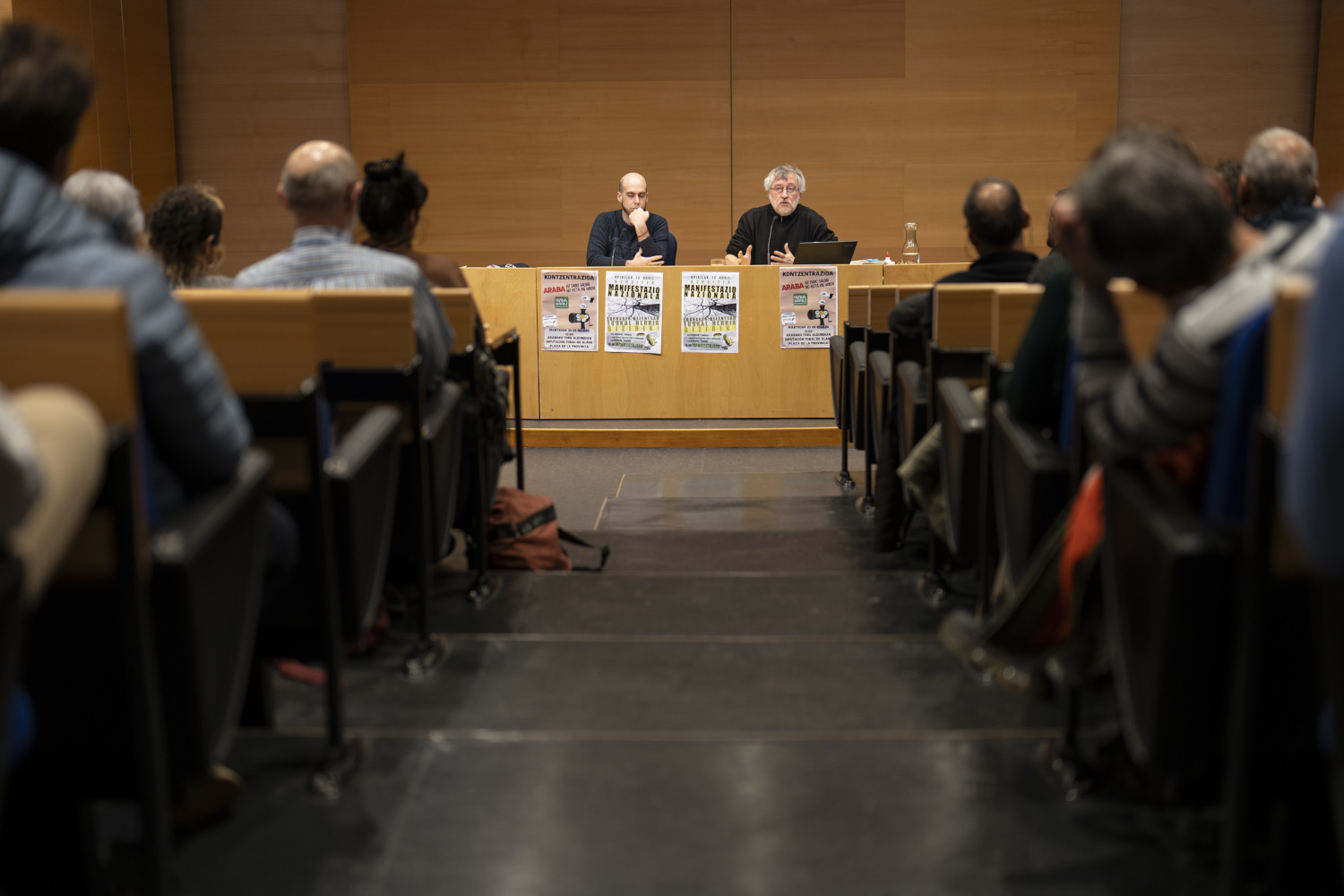
There is a road D, assumed by small sectors
"No solution?" The rhetorical question has been heard in the Artium hall. "Yes, but very difficult," Riechmann says: "We need a rapid decriment and a level of social equality that we have never known. A post-capitalist society." A society that would be an energy and materially austere society. But Riechmann says: "Without social equality there is no way to accommodate decrezentism. That is why we must work eco-socialism and eco-feminism". Answering questions from the public, he explains that the exercise posed by ecofeminism is basic: "Think what we really need to have meaningful lives. And let's look at what's really necessary about who those goods depend on and how we can sort their production and distribution within the boundaries of the Earth." Riechmann says that this path addresses social justice worldwide: "It's not that we have to be beneficial to distant cousins for justice or morality, but that, if we want to avoid hell, we have to cooperate." It has also considered it necessary to strengthen anti-militarism. And Almazán has emphasized "the role that counterculture can play in working other life models and values." In today's society, small sectors take this third path.
Dilemmas of the environmental movement facing the three doors
In the face of these three paths, what attitude should ecological movements adopt? Riechmann noted that there are no easy roads:
"If we say that we have to live with much less energy, what we are saying is that we have to get out of capitalism, and that said, we are left in marginality, because it clashes with the idea prevailing in society."
Another weakness is that living with less energy and materials leads directly to "material impoverishment", and in order to combat it, it is necessary to guarantee social equality, because otherwise people who are very precarious today cannot cope with this situation: "Today we do not have the strength to advance social equality, and without doing so we cannot socially guarantee a good life".
But dancing to the melody of green capitalism also has its risks for the environmental movement, as Riechmann warned: "This will soon come against us, because the citizens will tell us, we made a promise of good life with renewables and it has not been so."
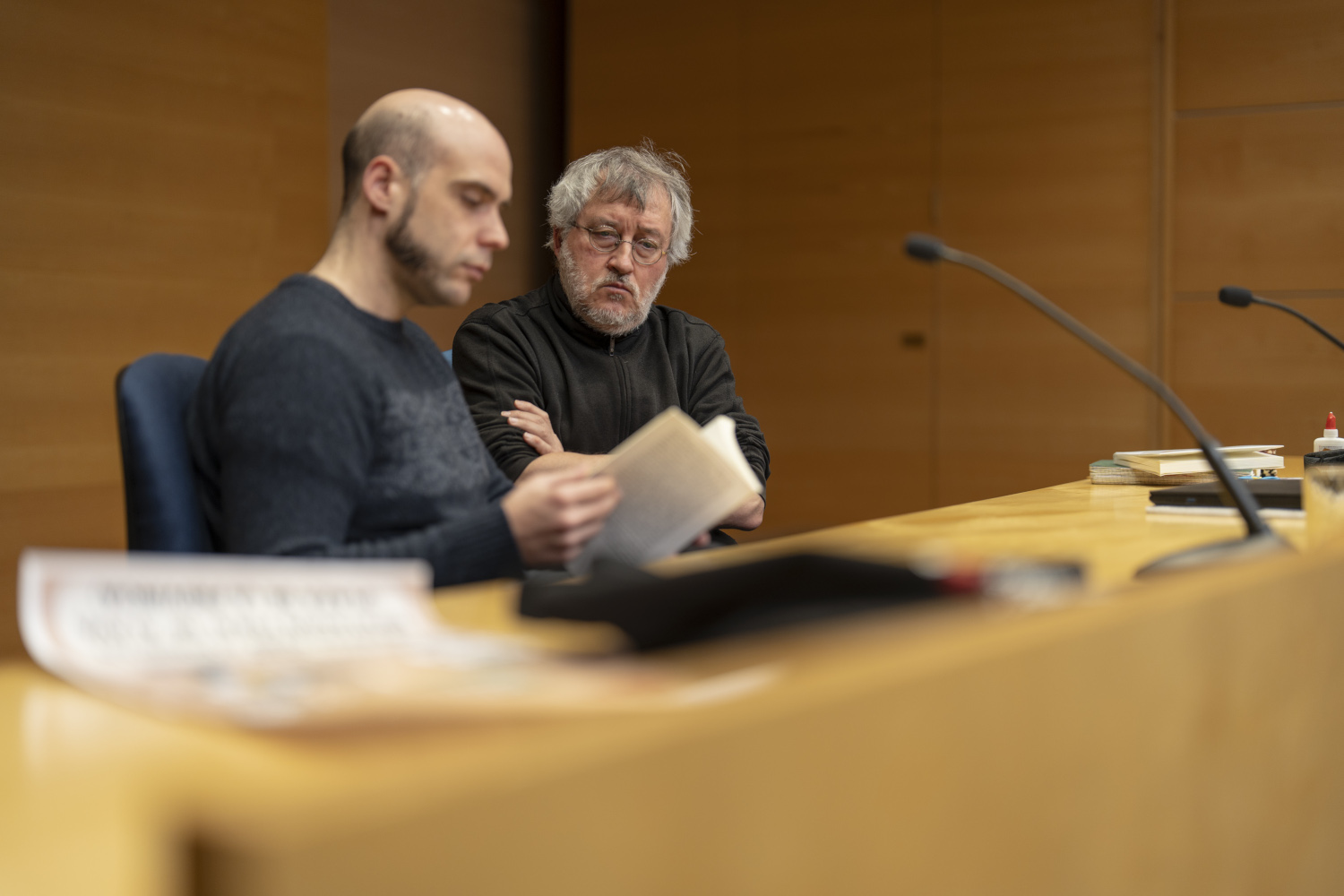
Photo: TwoPorDos.
"We know where we should go: agroecology"
Riechmann said that the environmental alliance with farmers and agricultural areas is "a priority", contrary to the public's questions. He explains that "we know where we have to go: agroecology. Agroecology is very well defined, has solid knowledge and practices". It has sent a message in favour of the strengthening and proliferation of farmers in agroecology.
At the same time, referring to the baserritars that have mobilized in the streets, points out that among them there are potential allies: "Not all are big capitalists of the food industry. They have to be separated, some feel that they are trapped in the trap and we have to help each other to release them. That is the way, these alliances must be articulated politically".
Almazán has joined this idea and affirmed that if the food system could be transformed, that would be the strongest strategic achievement in the face of the climate emergency: "If we manage to change to agroecology the sector that today is the most polluting, the difference is enormous. That is why there is such a strong political issue in food."
Greenpeaceko kideak Dakota Acces oliobidearen aurka protesta egiteagatik auzipetu dituzte eta astelehenean aztertu du salaketa Dakotako auzitegiak. AEBko Greenpeacek gaiaren inguruan jasango duen bigarren epaiketa izango da, lehenengo kasua epaile federal batek bota zuen atzera... [+]
In recent weeks we have been reading "proposals" for the recovery of the railway line Castec-Soria and the maintenance of the Tudela train station in its current location, or for the construction of a new high-speed station outside the urban area with the excuse of the supposed... [+]
The restoration of the natural characteristics of the beach of Waukee began three decades ago and continues without interruption in the staged restoration to counterclockwork.
Samuel (Bizkaia) is an exceptional space, very significant from the natural and social point of view... [+]
The update of the Navarra Energy Plan goes unnoticed. The Government of Navarre made this public and, at the end of the period for the submission of claims, no government official has explained to us what their proposals are to the citizens.
The reading of the documentation... [+]









